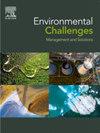利益相关者对坦桑尼亚南部Ifakara-Lupiro-Mang 'ula野生动物管理区有效性的看法
Q2 Environmental Science
引用次数: 0
摘要
在坦桑尼亚,野生动物管理区在村庄土地上建立,并由当地社区利益相关者以下放的方式进行管理。野生动物保护区旨在保护核心保护区以外的野生动物,如公园和保护区,同时也使当地社区能够从野生动物和其他自然资源中获得切实利益。本研究评估了各利益攸关方对坦桑尼亚南部Ifakara-Lupiro-Mang 'ula (ILUMA) WMA在保护、生计和社区发展功能方面的有效性的看法。通过深入访谈、焦点小组讨论和公共利益攸关方会议,对国家、区域、地区和村庄一级利益攸关方观点进行了专题分析,结果表明,WMA仅取得了非常有限的成功。所有参与者都讲述了牲畜放牧、农业、非法捕鱼、偷猎肉类、森林砍伐、木炭燃烧、木材采伐甚至永久定居点的广泛侵犯。造成这一现象的因素包括最近越来越多的农牧民移民涌入、自上而下的政治干预、财政限制、财务管理不善、运营资源有限、缺乏保护教育、投资者或政府支持,以及来自附近公园和保护区的迁移侵占压力,这两个保护区最近都进行了升级。为了确保WMA未来的成功和可持续性,与会者建议加强利益相关者和社区对WMA管理的参与,改善与附近公园和保护区的业务合作,修改WMA章程以采用当前的最佳做法,建立当地利益相关者的能力,并为当地社区提供保护教育。WMA应探索旅游业以外的其他生计和创收选择,例如可持续渔业或基于林业的碳融资。它还应解决长期存在的利益相关者村庄与最近到来的农牧民之间持续存在的土地使用冲突。本文章由计算机程序翻译,如有差异,请以英文原文为准。
Stakeholder perspectives on the effectiveness of the Ifakara-Lupiro-Mang’ula wildlife management area in Southern Tanzania
In Tanzania, Wildlife Management Areas (WMAs) are established on village lands and managed in a devolved manner by local community stakeholders. WMAs are intended to conserve wildlife outside core protected areas, like parks and reserves, while also enabling local communities to derive tangible benefits from wildlife and other natural resources. Here the perceptions of various stakeholders regarding the effectiveness of the Ifakara-Lupiro-Mang’ula (ILUMA) WMA in southern Tanzania were assessed, in terms of its conservation, livelihood and community development functions. Thematic analysis of national, regional, district and village-level stakeholder perspectives, surveyed through in-depth interviews, focus group discussions and a public stakeholders meeting, indicated the WMA had succeeded to only a very modest extent. All participants narrated extensive encroachment by livestock grazing, agriculture, illegal fishing, meat poaching, deforestation, charcoal burning, timber harvesting and even permanent settlements. Contributing factors include a recently growing influx of agro-pastoralist immigrants, top-down political interference, financial constraints, financial mismanagement, limited resources for operations, lack of conservation education, investors or government support, and displaced encroachment pressure from a park and a reserve nearby that had both been recently upgraded. To ensure future success and sustainability of the WMA, participants recommended enhancing stakeholder involvement and community participation in WMA management, improved operational collaboration with the nearby park and reserve, WMA constitution overhaul to adopt current best practices, building local stakeholder capacity and conservation education for local communities. The WMA should explore additional livelihood and income-generating options beyond tourism, for example sustainable fishing or forestry-based carbon finance. It should also resolve ongoing land use conflict between long-established stakeholder villages and more recently arrived agro-pastoralists.
求助全文
通过发布文献求助,成功后即可免费获取论文全文。
去求助
来源期刊

Environmental Challenges
Environmental Science-Environmental Engineering
CiteScore
8.00
自引率
0.00%
发文量
249
审稿时长
8 weeks
 求助内容:
求助内容: 应助结果提醒方式:
应助结果提醒方式:


